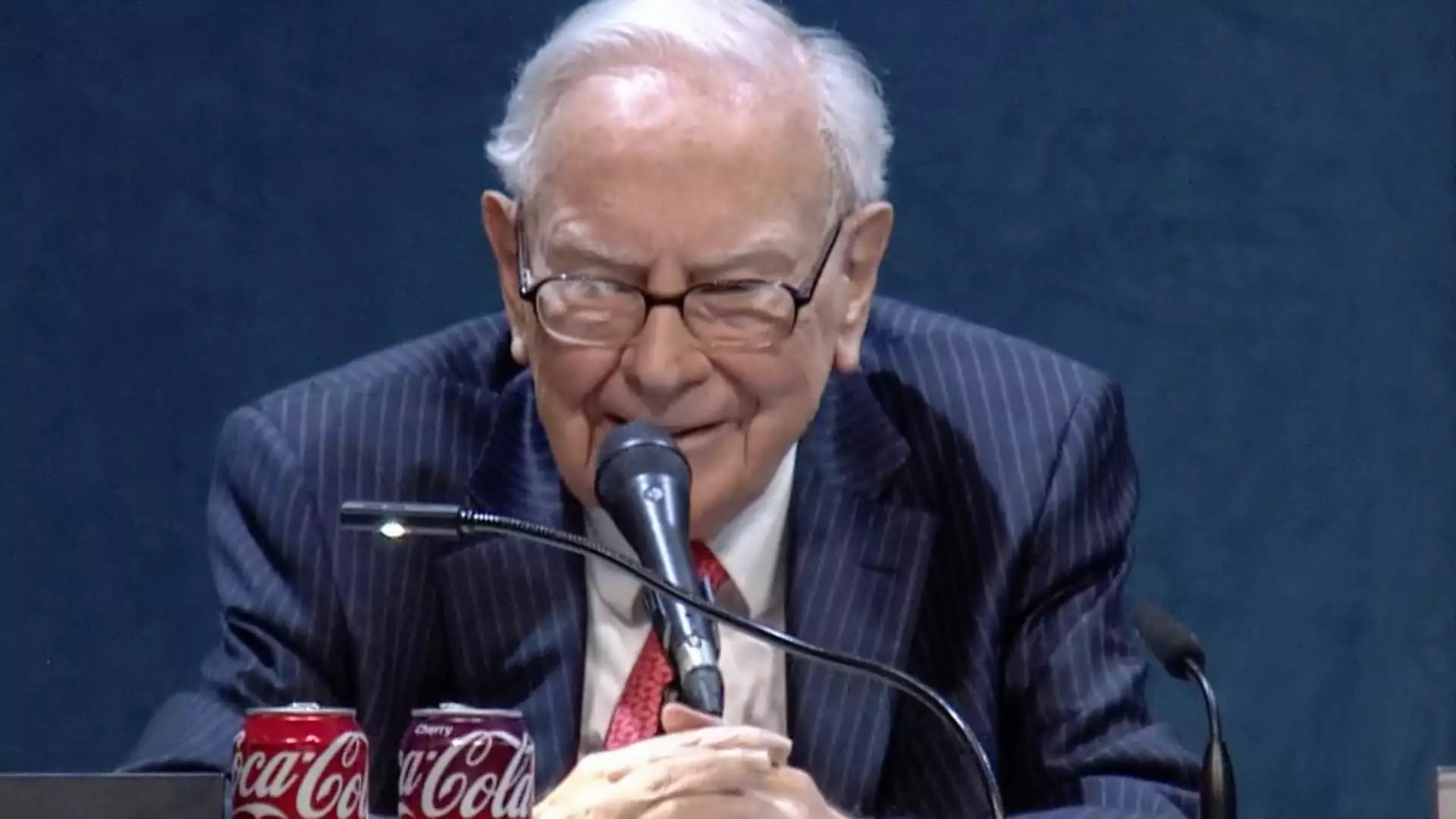It’s no secret that Warren Buffett’s Berkshire Hathaway stands as a colossal representation of American capitalism, boasting diverse investments ranging from energy to retail. However, the recent quarterly results released by the conglomerate paint a troubling picture that should stir more than just casual investor interest. A staggering 14% drop in operating earnings—now at $9.64 billion—is alarming enough by itself, but the implications of this decline reveal a troubling narrative about the current economic environment. Such a substantial decrease should act as a wake-up call, not just for Buffett’s followers but also for stakeholders in various industries that may be impacted by the shifting tides of economic factors.
Geopolitical Uncertainty: A Growing Threat
Buffett has always promoted a long-term view of investing, urging stakeholders to look past quarterly fluctuations. Yet, he now faces daunting challenges that defy long-term optimism. The conglomerate explicitly warned about the adverse effects of tariffs instituted under Trump’s administration, resulting in an unstable and unpredictable business climate. This uncertainty disrupts the careful calculations companies make regarding pricing, supply chains, and, ultimately, market demands. It raises the question of whether protecting American jobs—or whatever other goals these tariffs are purported to serve—ends up jeopardizing the very companies they aim to strengthen. Tariffs are typically clumsy instruments that can spiral into broader economic consequences, and it seems Berkshire is the latest victim of this geopolitical gamble.
Wildfires and Currency Risks: The Unseen Drain
Berkshire’s earnings were further eroded by specific risks that should concern all investors—namely, natural disasters and foreign currency fluctuations. The Southern California wildfires reportedly drained the conglomerate of over $1 billion in additional losses this quarter. Natural disasters, driven by climate change, have increasingly become a threat to profitability, stretching resources thinner and impacting underwriting profits significantly. On top of that, the company’s foreign currency losses of approximately $713 million during this quarter highlight how intertwined the complexities of international markets have become in today’s economy. The dollar’s decline is not just a passing blip; it’s indicative of broader concerns about the U.S. economy’s health.
Cash Hoard: A Double-Edged Sword
Interestingly, while these grim numbers stack up, Berkshire’s cash reserves have burgeoned to an unprecedented $347 billion. This raises important questions about Buffett’s strategy. Amidst a downturn, having such a significant cash reserve might suggest prudent risk management; however, it could also indicate an alarming hesitance to invest in potential future growth opportunities. In an environment where the stock market is showing volatility, maintaining a cash-heavy position implies a cautious outlook that not only sidesteps increased market risks but could also render Berkshire stagnant in a renewable and ever-competitive global landscape. A strategic shift may be warranted if Warren Buffett is to pivot his company towards a more constructive approach in the context of sustained economic headwinds.
Class A Shares: A Contrast in Performance
While the operating results have had a harsh downward tilt, the performance of Class A shares has seen a near 19% uptick over the same period, sharply contrasting with the broader S&P 500, which has plummeted by 3.3%. This divergence brings to light questions about market sentiment. Are investors casting away the concerns of declining profitability and geopolitical unrest? Or are they simply banking on Buffett’s historical acumen to ride out these turbulent times? Understanding this duality is crucial to grasping the overall market dynamics at play.
Implications for the Future
As the performance of Berkshire Hathaway becomes more complex, it urges a fundamental re-evaluation of what it means to be a Wall Street stalwart in today’s rapidly evolving business landscape. While Buffett’s long-term wisdom still carries weight, the immediate environment must call for an agile response to prevent stagnation. As Tribulations mount—both from regulatory measures and market volatility—the question remains: Will Berkshire navigate these challenges successfully, or will it succumb to the very forces that it has often managed to outsmart? The stakes have never been higher as traditional metrics of success clash with a reality fraught with uncertainty.

